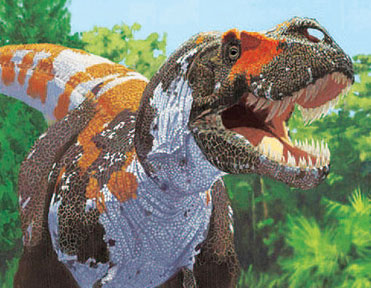Scientists prove carnivore theory
The extinction of a carnivore could lead to other predatory species
dying out, according to new research.
 Scientists have previously put forward this theory, but a University
of Exeter team has now carried out the first experiment to prove it. The
study shows how the demise of one carnivore species can indirectly cause
another to become extinct. Scientists have previously put forward this theory, but a University
of Exeter team has now carried out the first experiment to prove it. The
study shows how the demise of one carnivore species can indirectly cause
another to become extinct.
Researchers believe any extinction can create a ripple effect across
a food web, with far-reaching consequences for many other animals.
The research adds weight to growing evidence that a 'single species'
approach to conservation, for example in fisheries management, is
misguided.
Instead the focus needs to be holistic, encompassing species across
an entire ecosystem. The researchers bred two species of parasitic
wasps, along with the two types of aphids on which each wasp exclusively
feeds.
They set up tanks with different combinations of the species and
observed them for eight weeks.
In tanks that did not include the first species of wasp, the second
went into extinction within a few generations. In tanks in which they
co-existed, both wasp species thrived.
In the absence of the first wasp species, its prey grew in numbers.
This threatened the other aphid, which the second wasp species attacks,
eventually leading to its extinction.
Both types of aphids feed on the same plants and there was not enough
food for one to survive when the other thrived in the absence of its
wasp predator. Lead researcher Dr Frank van Veen said: "Our experiment
provides the first proof of something that biologists have argued for a
long time.
"That predators can have indirect effects on each other, to the
extent that when one species is lost, the loss of these indirect effects
can lead to further extinctions.
"Although our study focused on insects, the principle would be the
same for predators in any ecosystem, ranging from big cats on the
African plains to fish in our seas.
"Our research highlights the fact that a 'single species' approach to
conservation can be ineffective and even counter-productive.
- PA
|


